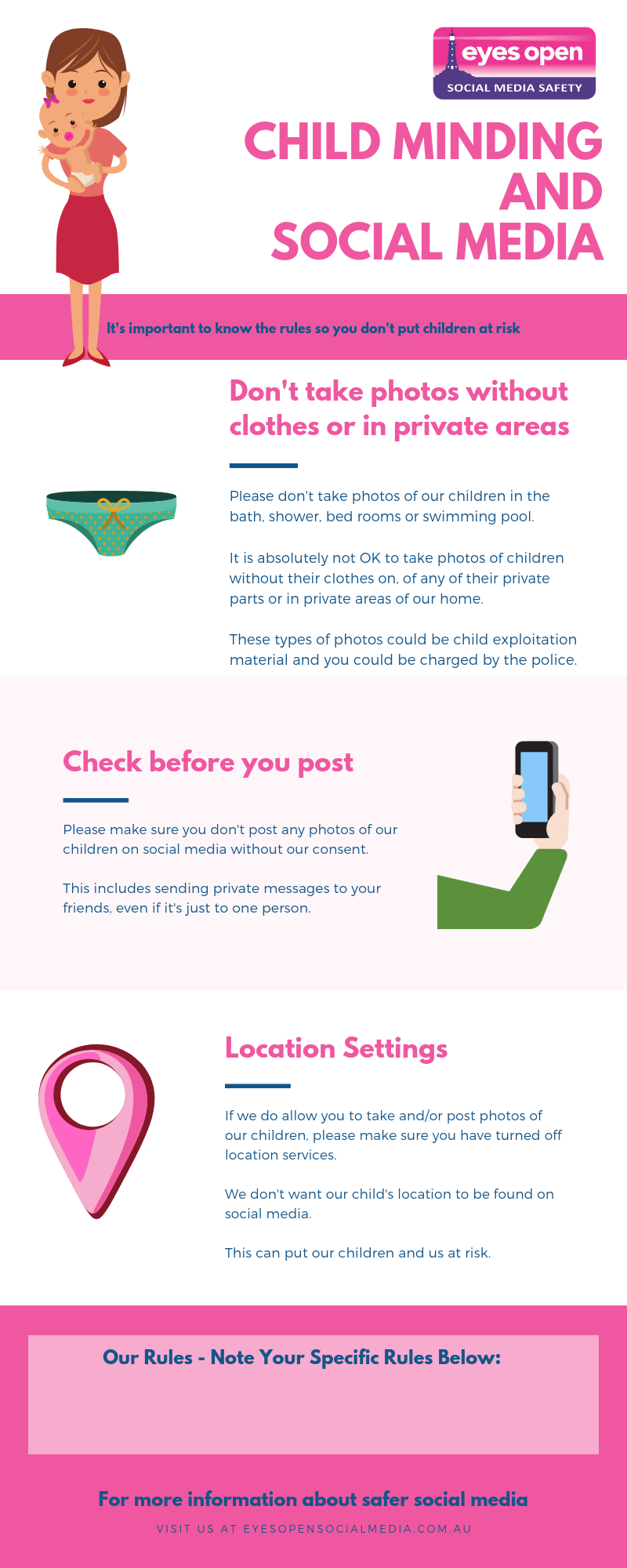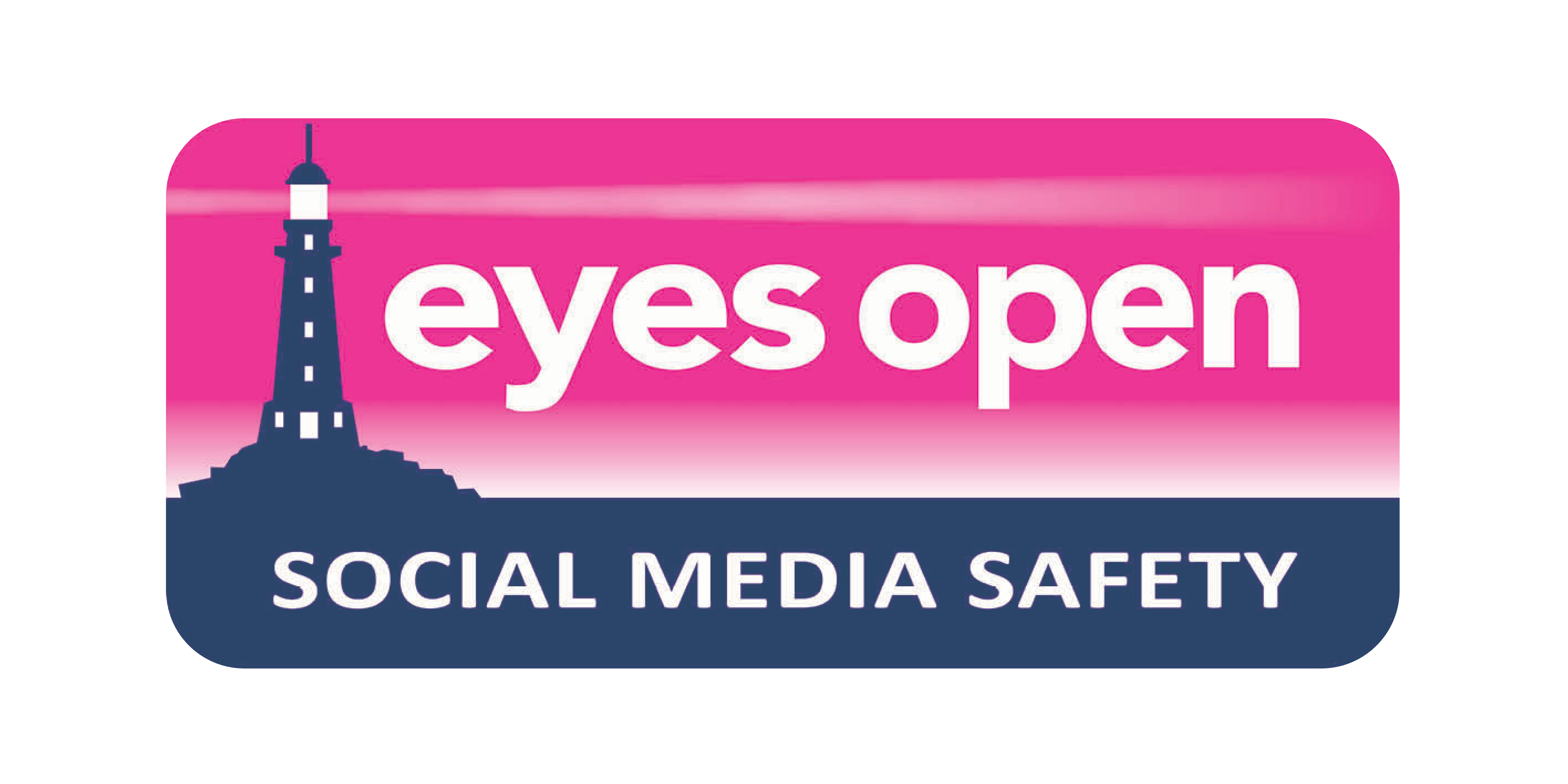It can be super difficult to have a conversation with the people minding your children after you discover that they’ve posted content involving your children on social media without your consent.
…so here are a few things you should speak with people about before you leave your children with them.
- Do you consent to other people posting images of your children on social media?
- Photos of children without clothing, with partial clothing or even in swimmers could put your child at risk and could be child exploitation material.
- Social media has the potential to allow strangers to see the location of the people in the images. This can put your child at risk immediately and in the future.
DO YOU CONSENT TO THEM POSTING YOUR CHILDREN ON SOCIAL MEDIA?
It’s totally OK for you to ask people not to post your children on social media. …even if you post pictures on your own account, you can still ask others not to.
You don’t need to justify this request, but if you do feel the need to give an explanation, here are some acceptable reasons you may like to be in control of your child’s social media presence.

When you post about your child on your own account:
- You can make decisions about how your child is represented (including how they are dressed and that they are not the types of images predators look for online);
- You can control who sees those pictures (we suggest photos of young children are only shared with your most trusted people);
- You can manage tagging and tag requests (which have the potential to allow more people to see the images);
- You can manage responses to the post and protect your child from negative commentary if necessary;
- You choose whether locations are attached to the images (we obviously suggest this is not a good idea if the photo is taken at home or at a place your child can be frequently found);
- You are able to make a conscious choice about creating a digital footprint for your child before they are able to make those choices themselves.
When someone else posts your child on their account, as a parent you have no control over any of these things.
Further, when someone else posts about your child, you have no control over:
- The image being shared with people you don’t know and trust;
- The image potentially being re-shared without your knowledge, outside the original audience;
- The photo being photo-shopped and used in ways that would horrify any loving parent.
PHOTOS THAT CAN PUT CHILDREN AT RISK AND/OR ARE UNACCEPTABLE.
People taking photos of children without their clothes, partially clothed or in explicit poses can be charged with creation of child exploitation material.
If these photos are posted to social media or even sent to one recipient via private message, the sender can be charged with distribution of child exploitation material.
There is also the risk of being charged with procuring and possession in regards to these types of images.
Photos of children in bathers should also be carefully considered as predators on the internet love these images and can easily photo-shop them to be something that was never intended by the loved one who took or posted the photo.
Photos in private parts of the house can give away more than intended about the family. Certificates on the wall, visible school uniforms or awards and many other household items could put the family at risk.
Baths & showers can make beautiful childhood memories, but these images aren’t safe on the internet.
LOCATIONS.
Often images are posted to social media with the user unaware that they have allowed location settings to give away where the photo was uploaded.
One of the most common mistakes we are seeing at the time of writing this article, is the public posting option on Snapchat that allows people to find your photo or video on the Snap Maps and hone in on the map to see the location of the post.
Just because your babysitter is young and a regular user of social media, you should never assume that they understand how features work.
…or that they are across how to reduce the risks associated with social media.
Locations being attached to images on social media have obvious risks for children and the risk is enhanced if it is demonstrated that the child in the photo or video is in the care of a young, easily impressionable carer who isn’t their parent.
Grooming of a baby-sitter to get access to children is not a new concept in the predator world. 🙁
Having a discussion about these really important topics before you leave your child in the care of another person, reduces the chance that you will be having an uncomfortable conversation with them when you arrive home.
We have attached a downloadable PDF for you to print off if you’d like to stick it to your fridge or give it to your carers.
Please share this article if you found value in the content. <3
~ Trish
